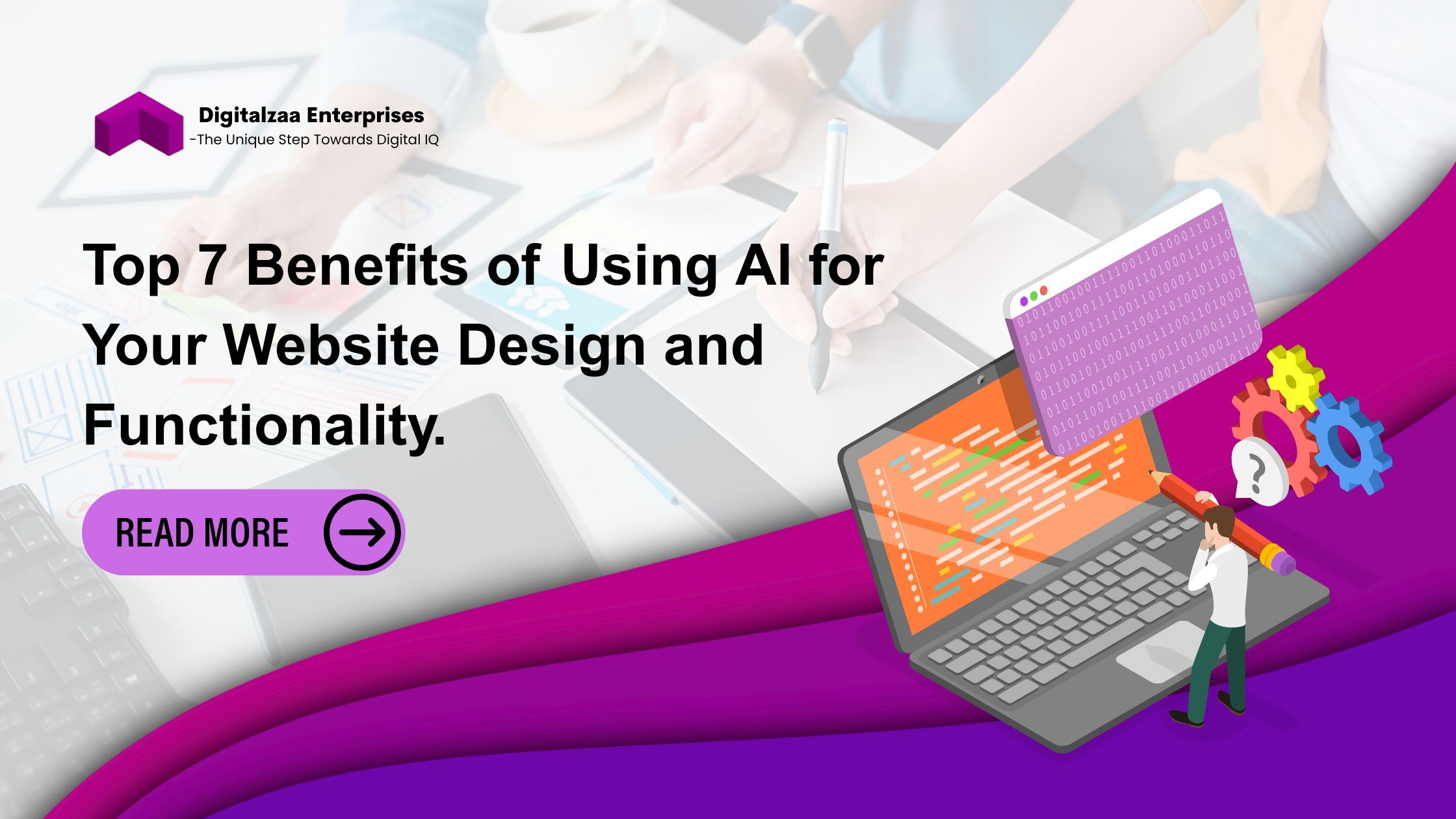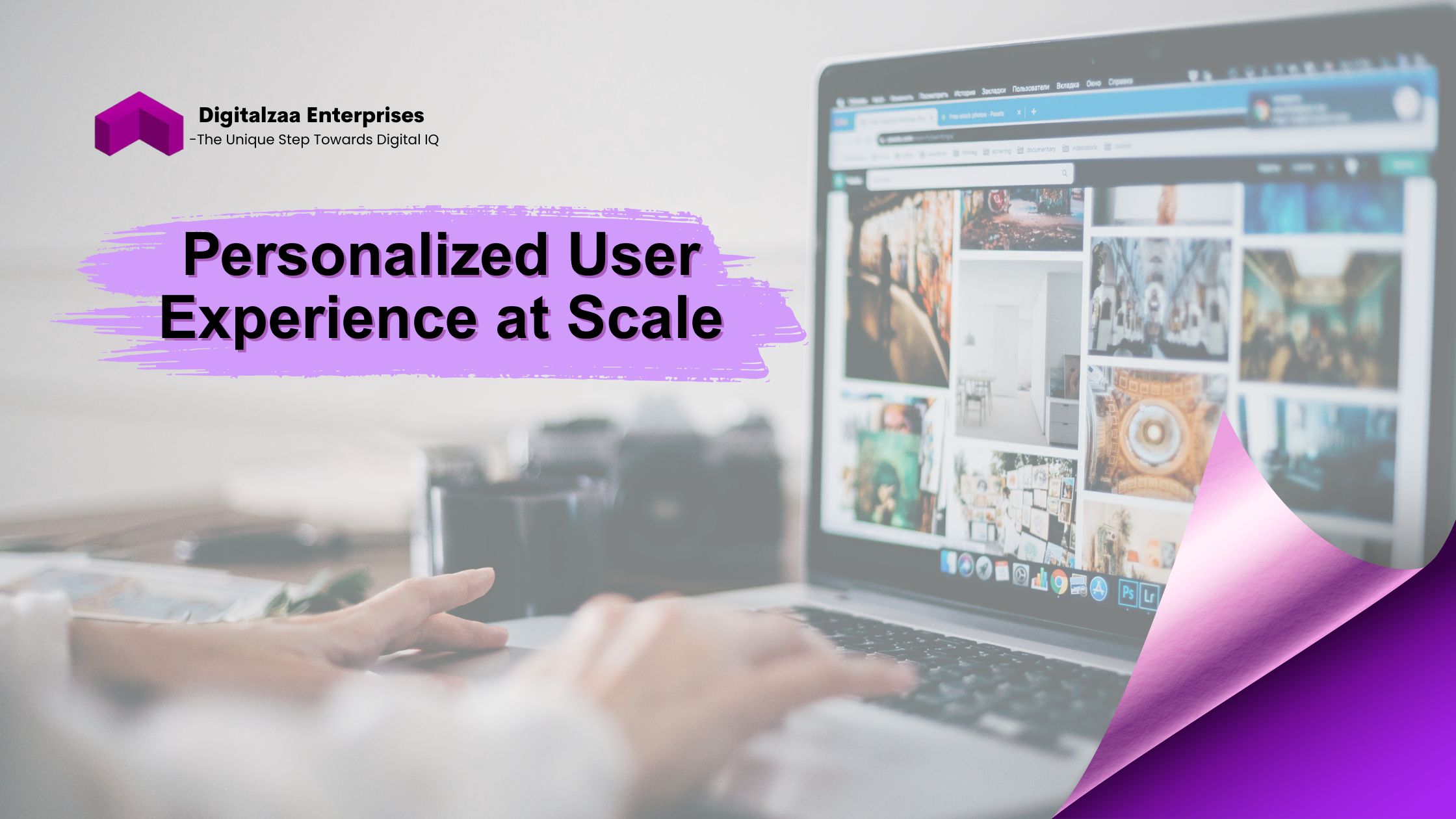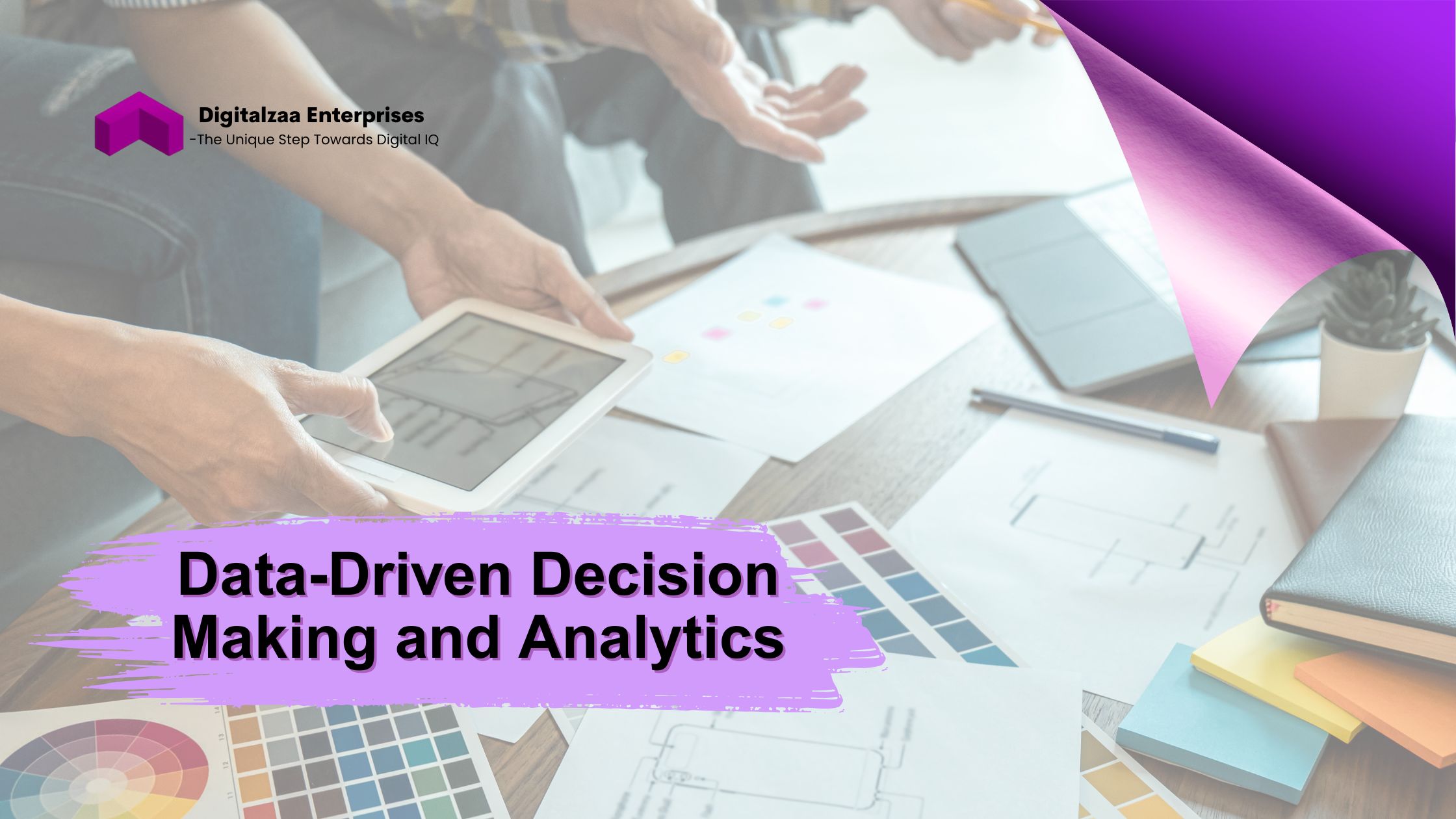Top 7 Benefits of Using AI for Your Website Design and Functionality.

In the digital-first age, websites are no longer just online brochures—they are immersive experiences that drive brand engagement, customer conversion, and business growth. With user expectations skyrocketing and competition intensifying, web designers and developers are under immense pressure to create intuitive, fast, and personalized websites. Enter Artificial Intelligence (AI): a transformative force that is redefining how websites are designed, developed, and managed.
AI is not just a buzzword—it's a practical, scalable, and increasingly indispensable tool in web development. From automating routine tasks to personalizing user experiences and improving performance metrics, AI can significantly enhance both the aesthetic and functional aspects of a website.
In this blog post, we’ll dive deep into the top seven benefits of using AI for your website design and functionality. Whether you're a startup founder, a digital marketer, or a seasoned developer, understanding these benefits will equip you with the insights needed to build smarter, more engaging, and high-performing websites.
- Personalized User Experience at Scale

One of the most impactful ways AI transforms web design is through hyper-personalization. Traditional websites deliver a one-size-fits-all experience, but AI allows you to dynamically tailor content, layout, and product recommendations to each individual user.
Here’s how it works:
- Behavioral Tracking: AI-powered algorithms track user behavior in real time, monitoring pages visited, clicks, dwell time, and shopping patterns.
- Predictive Analytics: By analyzing this data, AI can anticipate a user’s next move and suggest relevant content or products.
- Dynamic Content Delivery: Platforms like Adobe Sensei and Dynamic Yield allow businesses to automatically adjust their homepage or landing pages based on user profiles.
Why it matters:
According to a report by Epsilon, 80% of consumers are more likely to do business with a company that offers personalized experiences. With AI, your website becomes a living, breathing platform that adapts in real time, improving engagement, satisfaction, and conversion rates.
- Intelligent Chatbots and Virtual Assistants
Gone are the days when chatbots were clunky and frustrating. Today’s AI-powered chatbots, like those built with Dialogflow, Microsoft Bot Framework, or IBM Watson, can understand natural language, context, and even emotions.
Key functionalities include:
- 24/7 Support: Chatbots provide instant answers to common queries at any hour.
- Multilingual Capabilities: Serve global users by communicating in their native languages.
- Sales Assistance: Bots can guide users through the sales funnel by suggesting products, booking demos, or offering discounts.
From a business standpoint, intelligent virtual assistants reduce customer service costs, improve lead qualification, and enhance user satisfaction—all without adding to your human resource burden.
Real-world example: Sephora’s chatbot helps customers book beauty services, get product recommendations, and find store locations, resulting in higher engagement and in-store conversions.
- Enhanced UX/UI Design through Predictive AI
Designing an intuitive user interface is both an art and a science. AI helps blend the two by providing data-driven insights into how users interact with your site and suggesting design improvements.
Benefits include:
- Heatmap Analysis: Tools like Hotjar use AI to visualize where users click, scroll, or drop off.
- A/B Testing Automation: AI algorithms can automatically run multivariate tests and determine the best-performing design elements.
- Accessibility Optimization: AI can ensure your website complies with accessibility standards like WCAG by identifying areas that need better color contrast, alt texts, or navigational elements.
Furthermore, platforms like Wix ADI (Artificial Design Intelligence) can automatically generate entire website layouts based on user input and business goals, cutting design time dramatically.
- Smarter SEO and Content Optimization
Search Engine Optimization (SEO) is essential for driving organic traffic, but it's also time-consuming and complex. AI takes the guesswork out of SEO by analyzing data trends and automating key tasks.
Key AI applications in SEO:
- Keyword Research: Tools like Clearscope and MarketMuse use AI to recommend keywords with the highest impact based on current trends and SERP analysis.
- Content Generation and Summarization: GPT-based tools can draft content outlines, generate meta descriptions, and even write entire blog posts.
- Voice Search Optimization: AI helps structure content for voice queries, which are becoming increasingly common with the rise of smart speakers.
Additionally, AI can monitor your site’s SEO performance in real time, alerting you to broken links, slow-loading pages, or declining rankings, allowing you to fix issues before they impact your traffic.
- Improved Website Security and Fraud Detection
Cybersecurity is a growing concern, especially for e-commerce websites handling sensitive customer data. AI plays a critical role in identifying and mitigating security threats before they can cause harm.
Here’s how AI enhances website security:
- Real-Time Threat Detection: AI systems monitor unusual behavior such as multiple failed logins or high data transfer rates.
- CAPTCHA and Bot Protection: AI-based CAPTCHAs can distinguish between human and bot activity more effectively than traditional methods.
- Fraud Detection: For online payments, AI algorithms can detect patterns consistent with credit card fraud or identity theft.
Machine learning models are constantly evolving based on new data, making them better equipped to respond to emerging threats than static security protocols.
- Faster Development with AI-Powered Tools
AI significantly accelerates the website development process, making it more efficient and less error-prone.
Time-saving AI applications include:
- Code Generation: Tools like GitHub Copilot use machine learning to suggest code snippets, functions, and even entire modules.
- Bug Detection: AI can identify bugs in real time and suggest solutions based on historical data.
- Automatic Layout Generation: Platforms like The Grid and Wix ADI use AI to create visually appealing layouts based on content inputs, brand identity, and user preferences.
With these tools, developers can focus on solving complex problems rather than getting bogged down in repetitive tasks, resulting in faster go-to-market timelines and lower development costs.
- Data-Driven Decision Making and Analytics

AI doesn’t just improve your website’s front-end experience—it also powers smarter backend decisions through advanced analytics and data visualization.
AI-enhanced analytics capabilities:
- Predictive Modeling: Forecast user behavior, sales trends, or traffic spikes.
- Sentiment Analysis: Understand how users feel about your brand or content.
- Customer Segmentation: Identify high-value customer segments and tailor marketing strategies accordingly.
Platforms like Google Analytics 4 already use AI to provide insights into user engagement and conversion paths. This allows businesses to make informed decisions that improve ROI and align closely with user needs.
Conclusion
In conclusion, AI is profoundly transforming social media marketing by enabling businesses to engage with their audiences in smarter, faster, and more personalized ways. From predictive analytics and automated content creation to intelligent chatbots and real-time sentiment analysis, AI tools empower marketers to optimize campaigns, enhance customer experiences, and make data-driven decisions with unprecedented precision.
As consumer behaviors evolve, the ability to adapt quickly and respond meaningfully becomes crucial, and AI delivers exactly that. Companies that embrace AI in their social strategies are not only staying ahead of the competition but also building stronger, more authentic connections with their followers. By leveraging AI’s capabilities, marketers can focus on creativity and strategy while automation handles repetitive tasks. The future of social media marketing lies in this synergy of human insight and artificial intelligence. Businesses that act now will unlock new levels of efficiency, engagement, and growth in the ever-evolving digital landscape.


